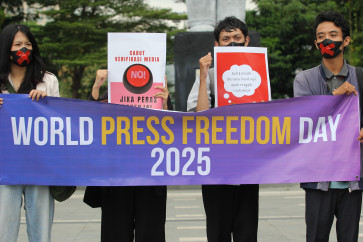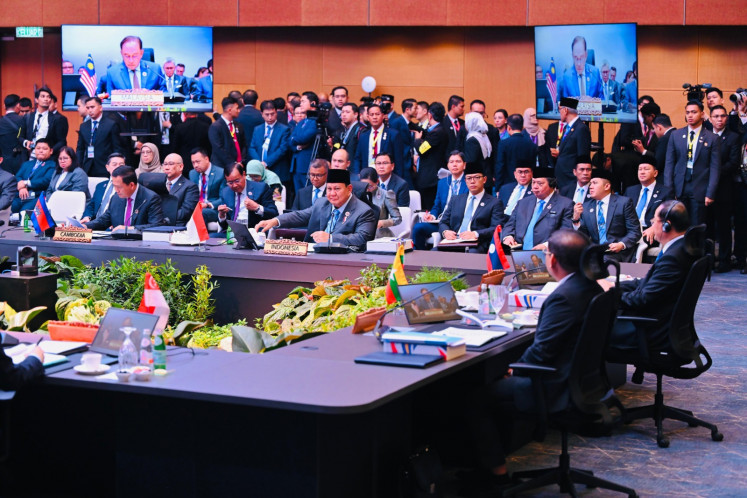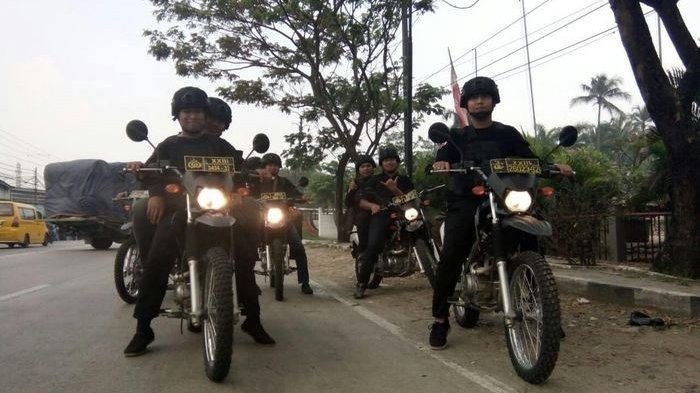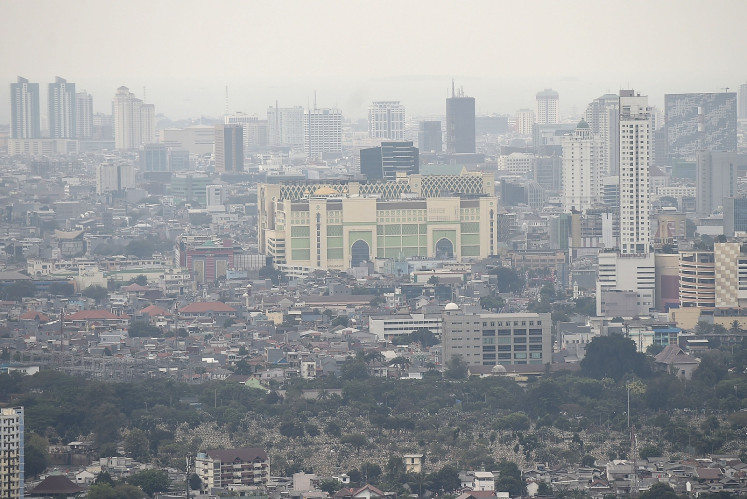Imagine if the Makassans had stayed
Theyâre geographically adjacent, regionally together and economically married
Change text size
Gift Premium Articles
to Anyone

T
hey're geographically adjacent, regionally together and economically married.
Historically both were British colonies. They share the same founding father, an adventurous naval officer prone to take long sea voyages.
On Jan. 26 Australians remembered the arrival of what they call the First Fleet in 1788. Eleven ships brought about 1,000 British settlers and convicts to start the New South Wales penal colony.
No-one asked the Aboriginal inhabitants for permission to land, though they'd enjoyed exclusive possession of Terra Australis Incognita (the unknown South Land) for around 50,000 years. Their descendants call this Invasion Day, a time for tears not cheers.
For most Australia Day is a chance to swap desks for beach. They barbecue lamb chops, hear rock concerts, watch fireworks and wave plastic flags made in China.
It's no slander to say the event is more frivolity than formality; the news would include police statistics about arrests for alcohol-fuelled violence.
Eleven days later and just across the Tasman Sea, sardonically known as The Ditch, New Zealanders will recognize their national day ' the Feb. 6, 1840 signing of the Waitangi Treaty between Maori chiefs and the British Crown.
Waitangi is in the Bay of Islands on the east coast of the North Island. The name means 'weeping waters'. Appropriate because the treaty, revered as the founding document of the South Pacific nation, didn't stop the later outbreak of racial wars.
British explorer Captain James Cook landed in Botany Bay, now in Sydney, 18 years before the First Fleet furled its sails. At the time perhaps half a million Aboriginal people were living off the land in several hundred small scattered tribes speaking different languages.
The official British policy was assimilation, but the land-hungry settlers had packed contempt with their firearms and Bibles.
Before Cook northern tribes had regular contact with Sulawesi fishers. They had mastered deep-sea navigation, metalwork and pottery. They carried guns introduced by the Dutch and Portuguese.
Had the Makassans been more interested in territory than trepang, the sea cucumbers gathered for the Chinese food trade, then Australia might now be called Jawa Raya or Greater Java.
But the arid Australian interior probably looked too uninviting, and the natives' culture too strange ' though that didn't stop the fishers taking women back home.
The first Australians island-hopped through the Indonesian archipelago when the seas were lower. They were nomadic, following seasons because much of the land was infertile.
They had sophisticated hunting weapons like the boomerang and woomera spear thrower but no wheel. Nor did they have natural protection against sicknesses unknown on the island continent.
The British brought smallpox, flu, measles and sexual diseases which had a devastating impact. So did the introduction of alcohol.
Skirmishes between settlers and residents were an unequal contest. There was no war, just widespread dispossession. Now Aborigines form just 2.4 percent of the national population.
Different in New Zealand; when Cook called in 1769 the Maori had occupied Aotearoa for about 600 years; they'd navigated south from Eastern Polynesia, so are not related to Australian Aborigines.
Grouped in iwi or tribes and often fighting each other, the Maori had long settled in fortified villages called pa and spoke much the same language.
They had vegetable gardens, reared pigs and lived well in a land of fertility.
_____________________________
Maori hold powerful positions in business, the public service and Parliament.
Through trading with European and American whalers they got firearms. Consequently the easy British takeover of Australia was not duplicated in New Zealand ' and that's reflected in Australia Day events and Waitangi Day.
In the mid 19th century 20,000 British troops battled 4,000 Maori opposing European settlement. Though outnumbered they fought ferociously and cleverly, using guerrilla tactics.
The New Zealand Wars took around 3,000 lives. Though radical Maori sometimes use the event to air grievances, Waitangi Day celebrations are now more solemn, religious and rich in protocol than those for Australia Day.
Maori form 15 percent of the national population and hold powerful positions in business, the public service and Parliament with 25 of the 121 seats. (There are only three Aborigines in Australia's 226 member national legislature).
Te Reo Maori is an official language and used in the national anthem. However the position of Maori as the second largest ethnic group after Europeans may soon be overtaken by Asian immigrants.
Though English dominates vocabularies and accents are diverging, just as they are between Indonesia and Malaysia.
Unlike Indonesia and the US the people of Australia and New Zealand did not fight their colonial masters for freedom. On Jan. 1, 1901 Australia became a self-governing Federation and a Constitutional monarchy through an act of the British Parliament.
On Waitangi Day there'll be banner waving, though this may be the last time the New Zealand ensign with the Union Jack is used officially.
Indonesians, so totally engaged with the Merah Putih (Red and White) find it weird that a nation would want to change its most potent international symbol.
But in March a binding referendum will decide whether the old flag ' often confused with the Australian ensign and suggesting control by the Mother Country ' should be hauled down in place of a silver fern and Southern Cross design.
Australians are nowhere near getting a treaty, a new flag or even a Bill of Rights. When New Zealand refused to join the Australian Commonwealth last century, the tiny nation set its own course, distinctly different from its giant neighbor, and socially more progressive, particularly with race issues
Sydney organizers pledged 'greater focus' on indigenous events for Australia Day which says much about past functions; the focus of Waitangi Day has always been a celebration of inclusivity and respect.
_______________________________
The writer is a journalist with a Masters degree in Australian Studies. He lives in East Java.









